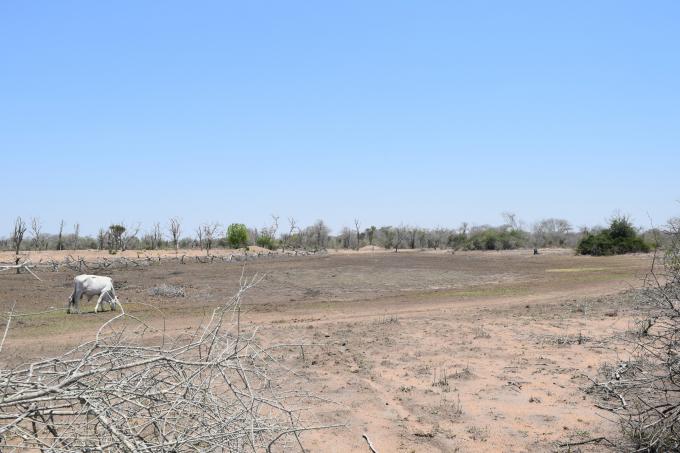Integrated interventions to fight the drought
Access to clean and safe drinking water is a major issue that affects families affected by the drought in Mozambique. These families are also in dire need of livelihoods support to avoid them slipping into a humanitarian crisis.
Concern Worldwide, Oxfam, Save the Children and Care International (COSACA) has been supporting communities to ensure that they have access to clean water by rehabilitating old boreholes as well as digging new ones. This is in a bid to ensure that access to clean drinking water is not hindered.
Some of the families most at risk are found in Gaza province. In Mabalane district, many of the households have not had proper harvests for more than a half a decade.
“We have had 3 barren years. The last proper harvest that we had that could sustain us was in the year 2010” Said Andre Zavali. Zavali and his family are beneficiaries of the COSACA response in Mabalane district.
The household benefits from livelihoods support and also receives water rations from Save the Children in Mozambique. In parallel with food vouchers, the project is implementing other livelihood activities such as seed distribution which will be followed by training of households on how better they can use the seeds in order to get a good harvest.

A cow grazing in a dried up watering trough
Weather forecasts have indicated that there will be rains in the last quarter of the year. The hope of this intervention is that when the rains will come, the families will be able to be food sufficient when they harvest.
Mr. Ilidio Nhatuve, COSACA manager trough Save the Children explained the hope and aspirations of the program in Gaza district. “Beyond the food security and livelihoods (FSL) support, we are integrating activities and trainings that would ensure farmers are able to get back to their feet after the program closes out. Some aspects of this include Food-for-Assets, activities such as training in conservation farming, and the development of community grain storage and homestead gardens” said Nhatuve.
Mr. Baloi, who is a community leader in the area further said they have started seeing the benefits of better ways of farming. “We have a demonstration farm as a community. We have been trained on improved farming methods and we are very grateful because we are confident that when the rains return we will be able to feed ourselves and sell the extra harvest in the market” he said.
The seed distributed are resistant/tolerant to drought and are locally adaptable so that can easily been conducted by the families and in the conditions of the impact area. A total of 114.050 tonnes of seed were distributed by COSACA in Mabalane as well as 4,562 tonnes of vegetables, other quantities were allocated in other districts of Gaza, Inhambane, Manica, Sofala, Zambézia and Tete provinces.
Save the Children in Mozambique has also involved the Ministry of Agriculture & Food Security at Provincial and District levels to ensure their effective participation after the COSACA response. Involving the various partners and stakeholders has strengthened the capacity of the community to build and strengthen linkages between themselves and services providers (traders, government and others).
About COSACA
COSACA consists of the international aid organizations CARE International, Oxfam, Save the Children and Concern Worldwide. The consortium began its work in Mozambique in 2007, delivering emergency and large-scale humanitarian assistance to communities affected by floods. COSACA has responded to reoccurring floods since 2013, and prepares communities for future natural disasters.
Since July 2015, COSACA has been addressing the needs of people affected by the worst drought in 35 years. The Agencies are pooling their respective technical expertise to ensure an effective emergency response. COSACA is collaborating closely with the national relief agency, the National Disaster Management Institute (INGC). The COSACA consortium is supported by DFID.
Story by Edward Ahonobadha
 Mozambique
Mozambique